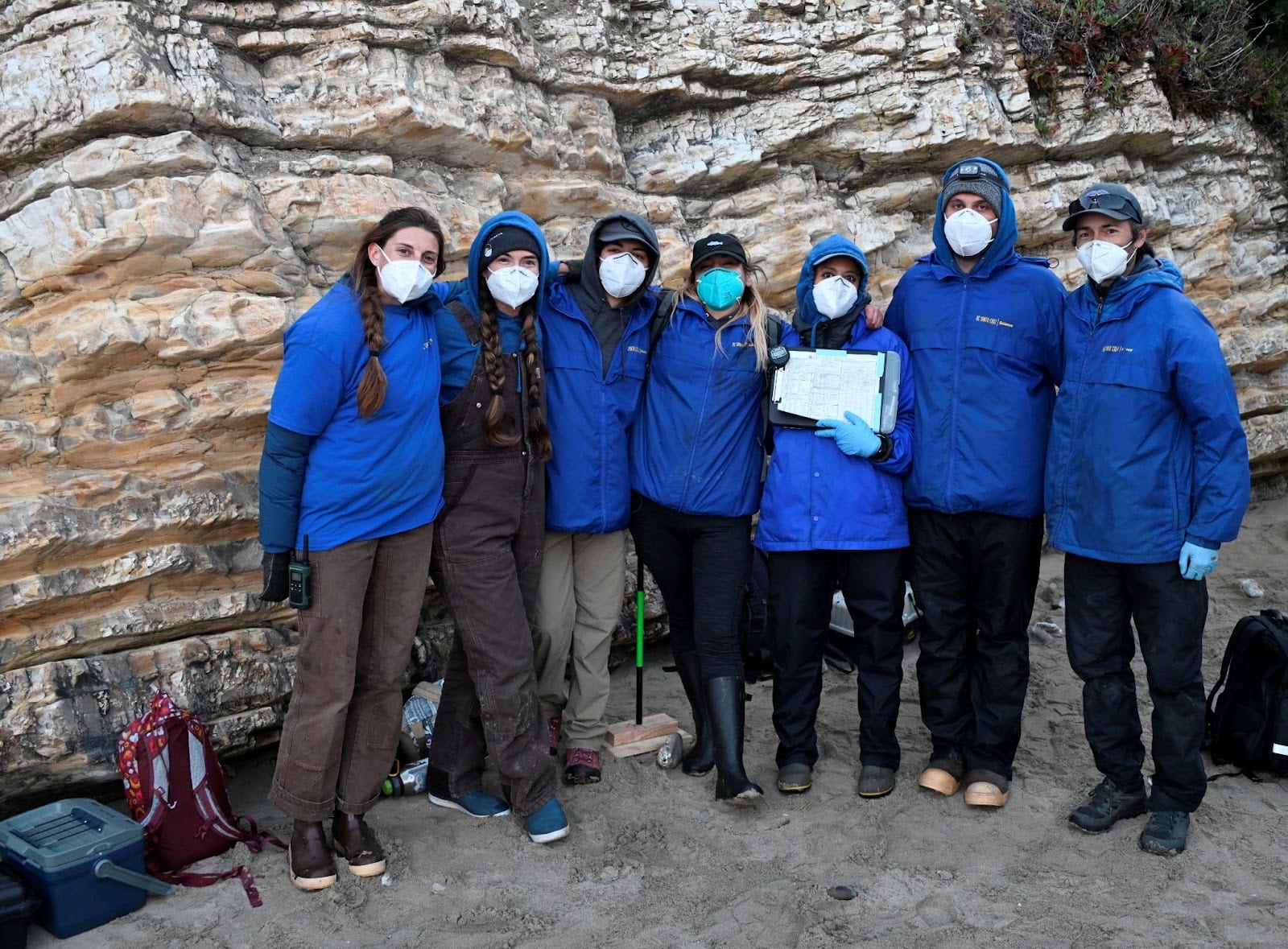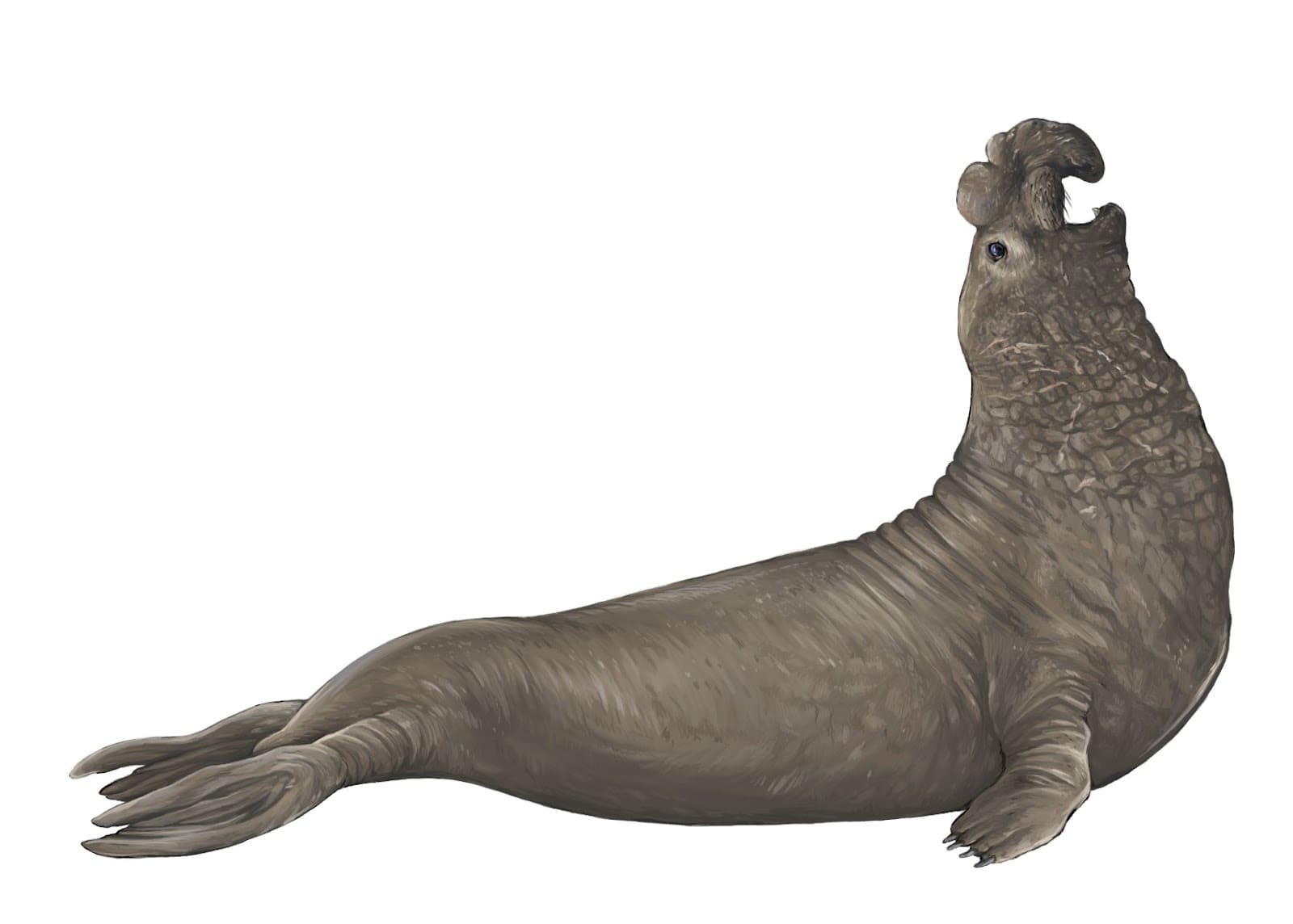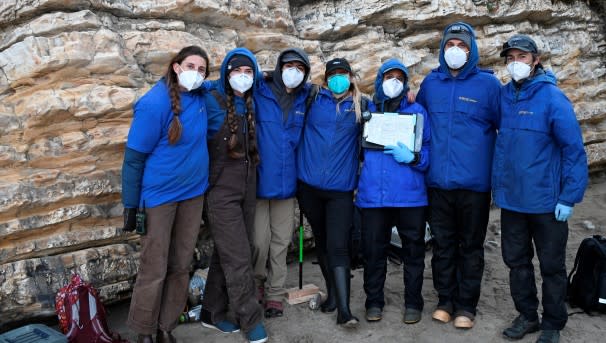This project is now in update mode. Check back regularly to see how things are progressing.
You can bring elephant seal science to Monterey Bay classrooms!
We invite you to participate in an exciting learning opportunity focused on elephant seal science in classrooms around Monterey Bay. By supporting a classroom, you can provide a multi-faceted learning opportunity for K-12 students, especially those from groups traditionally underrepresented in biology.
The project stems from our work at Año Nuevo Natural Reserve, which is home to nearly 10,000 elephant seals. During the breeding season, bigger males have more success at fighting for access to females than smaller males. But do extremely large bodies in males have other benefits or drawbacks? To answer this question, we are measuring food requirements and diving abilities in male and female seals from birth to adulthood. During the spring field season this year, we studied 32 elephant seals. We measured each seal and fitted them with sensors—a newly-developed electronic tag attached to the fur that transmits data on diving behavior, migration route, and feeding success during the seal’s ~5,000 kilometer, 7 month oceanic feeding migration. You can view the tracking data from the seals in real time here. We’re already learning so much about these young seals, including how far they go, how deep they dive, how much they eat, and how often they encounter their predators: killer whales and white sharks.
With your support, we can visit up to 32 classrooms this fall. Each donation of $200 or more will sponsor a single classroom visit. A graduate student will bring scientific tools, classroom materials, and a presentation about elephant seal natural history along with hot-off-the-press research findings and a research t-shirt or sticker for each student. Each donor–classroom pair will name an elephant seal that we instrumented this spring and will be able to follow that elephant seal throughout the year. The outreach team includes:
Roxanne Beltran (professor) has written an award-winning children’s book, “A Seal Named Patches,” and has visited more than 4,000 K-12 students to share her research.
Salma Abdel-Raheem (PhD student) is motivated to recruit, expose, and retain students from diverse backgrounds in marine mammal science.
Dan Palance (PhD student) serves as a docent at the Seymour Marine Discovery Center, where he communicates results from this project and others to the public at large.
Allison Payne (PhD student) is dedicated to increasing the representation of LGBTQIA+ scientists in STEM through science communication, public outreach, and service on DEI committees on local and international scales.
If you are a teacher around Monterey Bay interested in a classroom visit, please fill out this form.

The research team after instrumenting our first 2022 seal. From left to right: Roxanne Beltran, Allison Payne, Allison Coughlin, Milagros Rivera, Salma Abdel-Raheem, Dan Palance, Patrick Robinson. Photo by Dan Costa

Adult male elephant seal, illustration by Danielle Dube
$200
Sponsor a classroom visit
Each donation of $200 or more will sponsor a single classroom visit. A graduate student will bring scientific tools, classroom materials, and a presentation about elephant seal natural history along with hot-off-the-press research findings and a research t-shirt or sticker for each student



